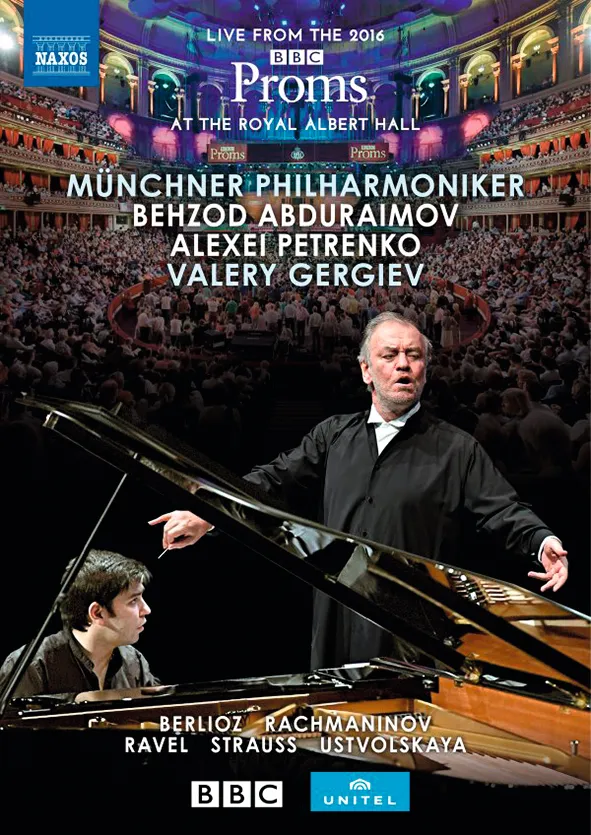
Valery Gergiev at the Proms Rachmaninov Piano Concerto No. 3; Ravel Boléro; R Strauss Der Rosenkavalier – Suite; Ustvolskaya Symphony No. 3; Berlioz Rákóczi March Behzod Abduraimov (piano), Alexei Petrenko (reciter); Munich Philharmonic/Valery Gergiev Naxos 2.110572 111 mins (DVD)
In this curious programme, three prime examples of orchestral luxuriance surround Galina Ustvolskaya’s spartan Third Symphony like a feather pillow with a jagged lump of granite in it. The occasion is Valery Gergiev’s appearance at the 2016 BBC Proms in his first season with the Munich Philharmonic. Opening with Boléro underlines the sense of showcasing his new toy: it is a beautifully moulded performance, the clarinet solo early on having a remarkable veiled quality. At the other end of the evening, the Suite from Der Rosenkavalier also provides much fine playing, the orchestra’s textures gorgeously luminescent in the lyrical passages. All is conveyed in reasonably tasteful camerawork and sound that faithfully captures the orchestral textures within the Royal Albert Hall’s cavernous acoustic, though with occasional odd noises in the background. Yet the show’s true star is young Uzbek pianist Behzod Abduraimov, who is by turns sublime and dazzling in Rachmaninov’s Third Concerto. It’s a pity that his encore (Liszt’s ‘La Campanella’) is not included. Even after an interval, Ustvolskaya’s Symphony is an extreme juxtaposition. Starting with a grim-faced Alexei Petrenko declaiming the text by 11th century monk Hermanus Contractus, the quirky ensemble of winds, double basses, percussion and piano obsesses on starkly defiant phrases. The Russian text (provided in the booklet, but not as subtitles) cries for salvation. One may wonder, though, whether this is really a work of faith given the bleak absence of hope. That it sticks out in this programme masks the fact that all of the works are disjunct from each other, adding-up to less than the sum of their parts.
Christopher Dingle